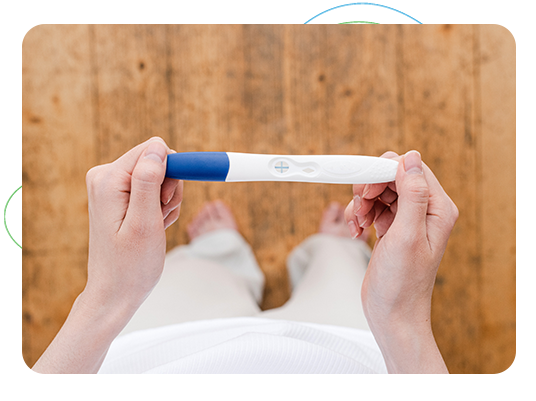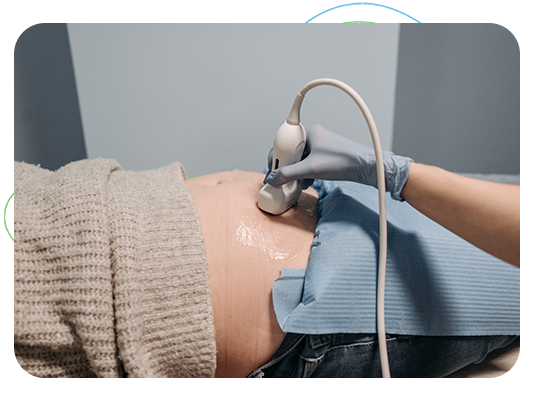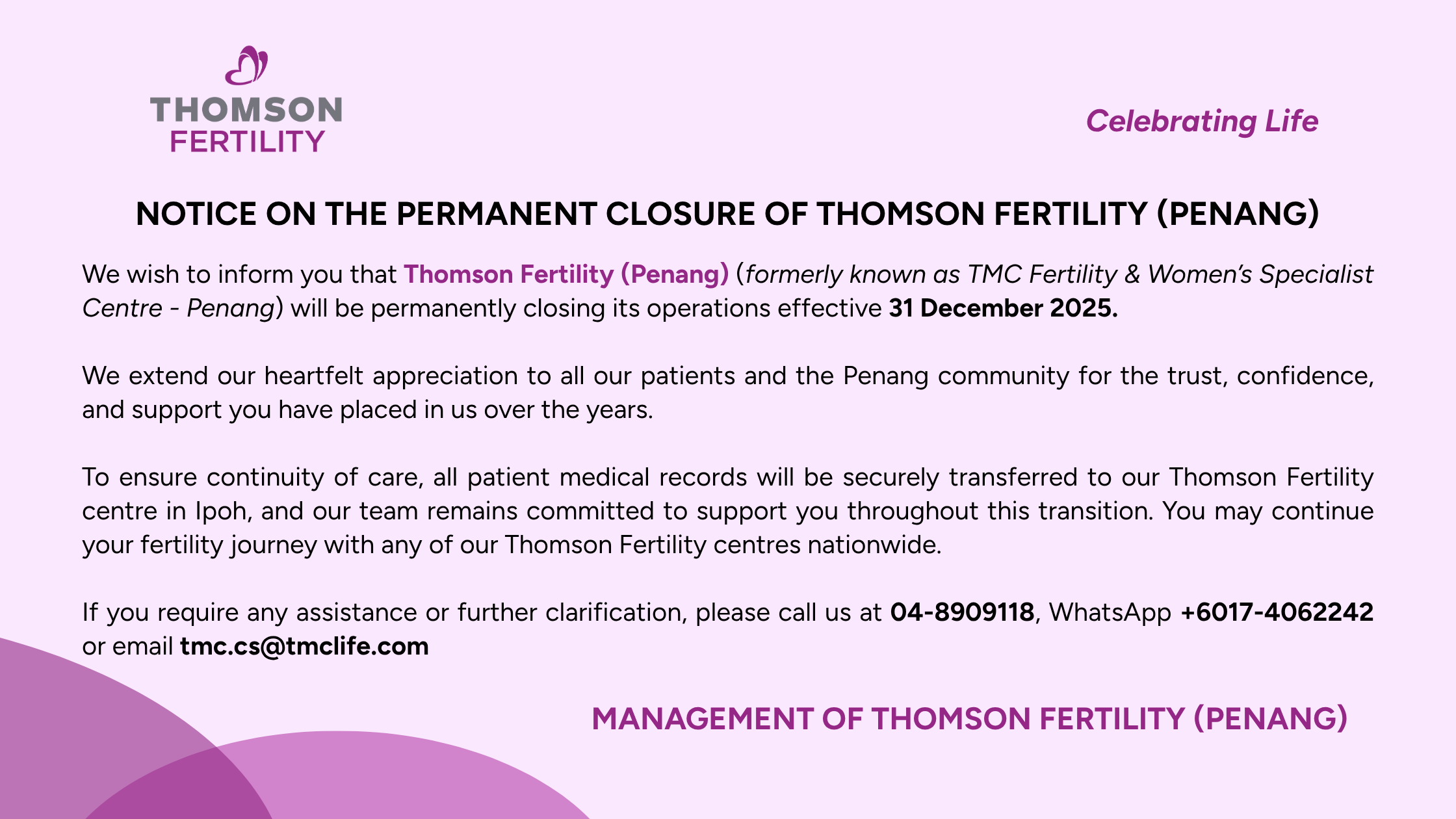
According to statistics, fertility problems affect around 10-15% of couples of reproductive ages (14-65) in Malaysia. The problem is reportedly becoming common over the years.
Many couples do not seek professional help because of shame, stigma, or lack of resources. Some couples also resort to unproven or outdated methods to conceive, with no success.
The World Health Organization (WHO) emphasizes the need to address infertility issues before they cause permanent infertility. It is advisable to go through fertility testing with professional help.
What is Fertility Testing?
Fertility testing refers to various diagnostic procedures that identify fertility problems. It involves testing both partners to identify the root cause/s of infertility. If the test results identify a problem, the doctor will suggest the best type of treatment for your case.
You are a good candidate for fertility testing if:
- You are of reproductive age. The reproductive age starts from the first period in females and ends at menopause (approx. 45 years old). In males, the reproductive age span is larger but male fertility is at its peak between the ages of 16-45.
- You have tried many times to conceive without success. If despite your efforts, you failed to conceive within 1-2 years, this may show a fertility problem.
- You suspect health problems, especially hormonal issues that may affect your fertility. These may include low testosterone, low progesterone, or low follicle-stimulating hormone (FSH).
- You have tried other treatments to no avail. If you have tried other ways but failed to conceive, you should get tested for infertility.

What To Expect During Initial Visit
During your first appointment with a fertility specialist, you will go through several tests. These are necessary to identify any infertility problems. The doctor will consider your medical history, lifestyle, and other factors that may affect your fertility.
These checks generally involve:
- A report of your medical history. Your medical history includes past health problems, hospital/doctor visitations, and past surgeries. In some cases, you may be asked for DNA testing or birth defects and family medical history.
- Usage of prescription drugs, OTC (over-the-counter), and alternative remedies.Some prescription drugs, OTC pills, and herbal supplements may affect your reproductive health. These may include certain anti-inflammatory drugs (e.g. Motrin, Advil), psychiatric medications, steroids, or phytoestrogen supplements.
- Consumption of alcohol, tobacco, or drugs. Studies show that addiction to alcohol, smoking, and drugs negatively affects female and male fertility. Substance addiction also decreases the efficiency of fertility treatments.
- Any potential exposure to chemicals or radiation in your environment. Recent studies have found that exposure to radiation raises body temperature and decreases sperm power in males.
- Your sexual history, frequency, and ejaculation patterns. Certain sexual problems e.g. erectile dysfunction have a direct negative impact on conception.
- Your clothing and underwear choices. Especially for men, tight underwear may keep the temperature of the scrotum too high for sperm production.
There are also different screening tests for males and females.
- A complete hormonal report between the 2nd and 4th day of your menstrual cycle. A hormonal report also tracks your menstrual cycle and identifies menstrual problems.
- Blood testing to determine if you are ovulating. In some cases, periods can occur without ovulation. To find out for sure, the doctor will perform some hormonal tests to determine if you’re ovulating.
- An ultrasound to scan the condition of your uterus and ovaries in your lower abdomen area. It allows the doctor to gain a closer inspection to check for potential counts of unfertilized eggs, scarring, and other damage to the uterus.
- A laparoscopy check to determine whether there is a blockage in the fallopian tubes. In laparoscopy, the doctor inserts a fibre-optic tube tool (laparoscope) through your vagina. The tool allows the doctor to examine the state of your fallopian tubes and surrounding reproductive organs.
- A hysteroscopy check to examine any issues with the uterus. Hysteroscopy involves the insertion of a hysteroscope tool through the vagina and cervix. This will enable your doctor to check the condition of your uterus and identify any issues, e.g fibroids.
- A hysterosalpingogram X-Ray test is to check the fallopian tubes. It is useful to check whether fallopian tubes are open, and if the uterine lining is normal.
- Extensive semen analysis to assess sperm quality, count, and motility. Here, the doctor will ask the male for a sperm sample and perform a clinical analysis of the collected sperm. The process typically takes 2 hours.
- HIV and Hepatitis C and B testing. In HIV testing, the doctor will collect a blood sample and send it to the laboratory to determine the presence of antivirus bodies or HIV RNA. Likewise, in Hepatitis C and B testing, your doctor will draw a blood sample to check if there are any antibodies against the disorder.
- Venereal Disease Research Laboratory (VDRL) testing for syphilis. VDRL is a special blood test that checks for any potential antibodies against syphilis.

If you are a female, you don’t have to abstain from sex a few days before the testing. However, the male partner shouldn’t ejaculate 3-7 days before the visit.
Keep in mind that the time taken for procedures and report generation varies. For example, an ultrasound usually takes 30-60 minutes to get results. While blood tests take only a few minutes, results may be ready after a few days.
Cost of Infertility Test in Malaysia
The cost of basic fertility testing usually ranges from RM250- RM800 depending on the diagnostic procedure. This rate includes ultrasound testing and blood tests and applies to each partner separately.
FAQ
Because most fertility tests are generally quick and non-invasive, there is minimal pain involved. However, some tests e.g. hysteroscopy that involve the insertion of a tool in the vagina may be painful. In such a case, your doctor may apply topical numbing agents or advise you to take painkillers at least 20 minutes before the procedure.
You won’t have to take drastic measures to prepare yourself for testing. It is advised to refrain from alcohol and drug consumption a few days before the first session. Males should refrain from ejaculation a few days before the visit. It also suggested that you keep yourself hydrated before the blood tests take place.
The main hormones tested include estradiol, progesterone, prolactin, anti-mullerian hormone, and follicle-stimulating hormone (FSH) in women. In males, the main hormones tested include testosterone and androgens.
Generally, YES. As long as you deal with skilled doctors and medical staff, there is no reason to worry. Our skilled fertility specialists take all the necessary safety and hygiene measures, so this shouldn’t concern you.
If you had trouble conceiving before, the answer is YES. The tests to identify the cause of your infertility are crucial. Without identifying the cause of your infertility, any attempts to conceive will most likely fail.
Although some insurance companies in Malaysia may cover some fertility treatments, there are no companies currently that clearly state insurance coverage for testing. If you are unsure, you may reach out to your insurance provider.
Yes, professional fertility tests, and especially hormone tests are between 94-99% accurate. The same rates apply to blood tests for sexually transmitted diseases e.g. AIDS or syphilis. If their results are unclear, the doctor may ask you to perform the tests again after some time. But, this is rare as the tests yield accurate and clear results from the first time.
Generally, couples who haven’t conceived after 1-2 years of unprotected intercourse are advised to consider infertility test. This timeframe may be shorter if there are underlying medical conditions, age factors, or specific concerns.
Tests are available for both females and males:
- Females: Blood tests, ovulation tests, ultrasounds, HSG (checks fallopian tubes), laparoscopy/hysteroscopy (internal examinations).
- Males: Semen analysis, hormone testing, and physical exam.
The specifics vary, but generally, expect:
- Medical history and family history discussion.
- Physical exam.
- The test procedure itself (varies based on the test).
- Results discussion with the doctor.
If a cause is found, your doctor will discuss fertility treatment options. If no cause is identified, further testing or referral to a specialist may be recommended.
When looking for fertility testing in Malaysia, it’s important to choose a recognized medical centre. A skilled team of fertility specialists can help you diagnose and treat your fertility problems.
At TMC Fertility, we have helped many couples conceive. Our high success rates speak for themselves.
We are ready to help you overcome your fertility issues every step of the way. For more info, do not hesitate to contact us to address all your infertility concerns.


